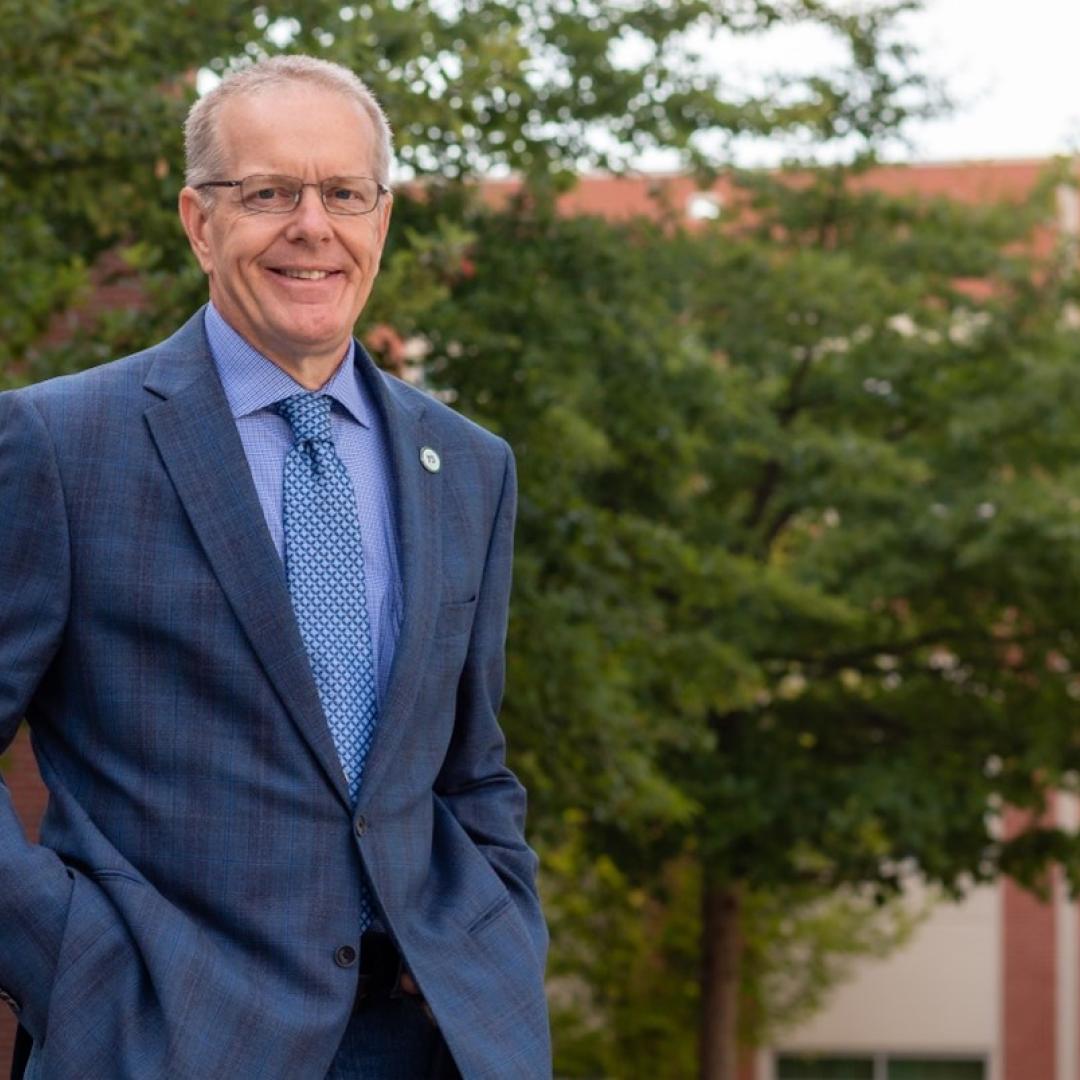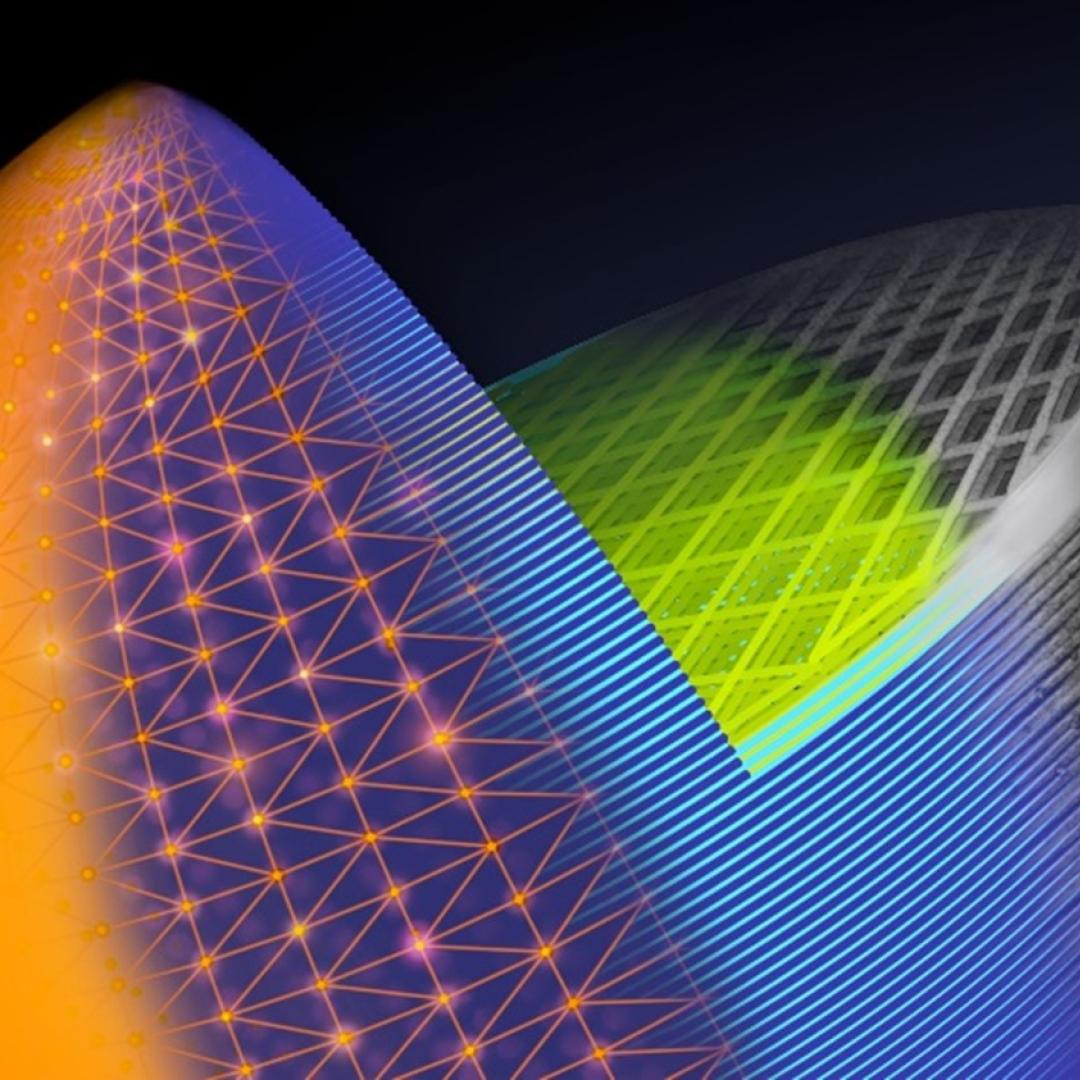
Filter News
Area of Research
- Advanced Manufacturing (22)
- Biological Systems (1)
- Biology and Environment (26)
- Building Technologies (1)
- Clean Energy (88)
- Computational Biology (2)
- Computational Engineering (1)
- Computer Science (1)
- Fusion and Fission (4)
- Fusion Energy (1)
- Isotopes (5)
- Materials (31)
- Materials for Computing (4)
- National Security (22)
- Neutron Science (17)
- Nuclear Science and Technology (7)
- Quantum information Science (2)
- Supercomputing (28)
News Topics
- (-) 3-D Printing/Advanced Manufacturing (121)
- (-) Biomedical (58)
- (-) Cybersecurity (35)
- (-) Element Discovery (1)
- Advanced Reactors (34)
- Artificial Intelligence (91)
- Big Data (53)
- Bioenergy (91)
- Biology (98)
- Biotechnology (22)
- Buildings (57)
- Chemical Sciences (63)
- Clean Water (29)
- Climate Change (99)
- Composites (26)
- Computer Science (187)
- Coronavirus (46)
- Critical Materials (26)
- Decarbonization (79)
- Education (4)
- Emergency (2)
- Energy Storage (108)
- Environment (194)
- Exascale Computing (37)
- Fossil Energy (5)
- Frontier (42)
- Fusion (54)
- Grid (62)
- High-Performance Computing (84)
- Hydropower (11)
- Irradiation (3)
- Isotopes (53)
- ITER (7)
- Machine Learning (47)
- Materials (144)
- Materials Science (140)
- Mathematics (7)
- Mercury (12)
- Microelectronics (3)
- Microscopy (51)
- Molten Salt (8)
- Nanotechnology (60)
- National Security (61)
- Net Zero (13)
- Neutron Science (131)
- Nuclear Energy (108)
- Partnerships (44)
- Physics (61)
- Polymers (33)
- Quantum Computing (34)
- Quantum Science (69)
- Renewable Energy (2)
- Security (24)
- Simulation (47)
- Software (1)
- Space Exploration (25)
- Statistics (3)
- Summit (57)
- Sustainable Energy (125)
- Transformational Challenge Reactor (7)
- Transportation (97)
Media Contacts
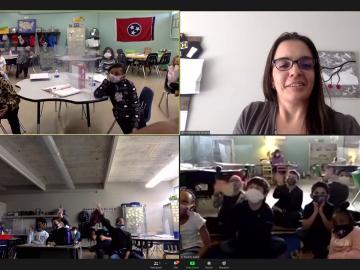
Twenty-seven ORNL researchers Zoomed into 11 middle schools across Tennessee during the annual Engineers Week in February. East Tennessee schools throughout Oak Ridge and Roane, Sevier, Blount and Loudon counties participated, with three West Tennessee schools joining in.
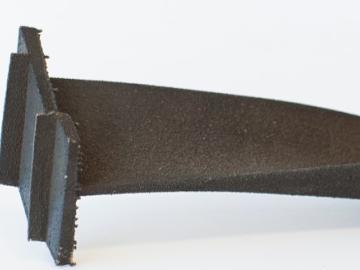
Oak Ridge National Laboratory researchers have demonstrated that a new class of superalloys made of cobalt and nickel remains crack-free and defect-resistant in extreme heat, making them conducive for use in metal-based 3D printing applications.
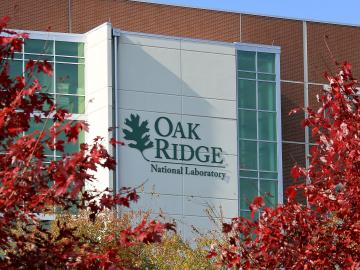
Thirty-two Oak Ridge National Laboratory employees were named among teams recognized by former DOE Secretary Dan Brouillette with Secretary’s Honor Awards as he completed his term. Four teams received new awards that reflect DOE responses to the coronavirus pandemic.
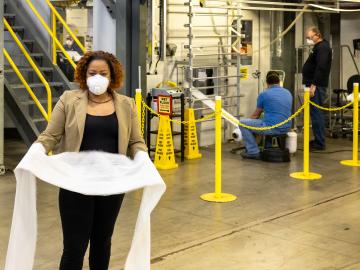
Three technologies developed by ORNL researchers have won National Technology Transfer Awards from the Federal Laboratory Consortium. One of the awards went to a team that adapted melt-blowing capabilities at DOE’s Carbon Fiber Technology Facility to enable the production of filter material for N95 masks in the fight against COVID-19.
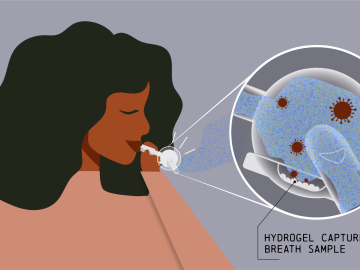
Collaborators at Oak Ridge National Laboratory and the University of Tennessee Health Science Center are developing a breath-sampling whistle that could make COVID-19 screening easy to do at home.
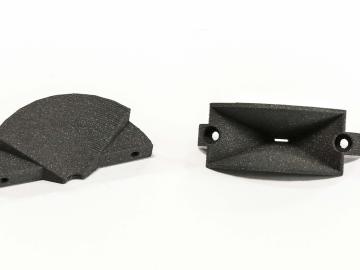
The ExOne Company, the global leader in industrial sand and metal 3D printers using binder jetting technology, announced it has reached a commercial license agreement with Oak Ridge National Laboratory to 3D print parts in aluminum-infiltrated boron carbide.
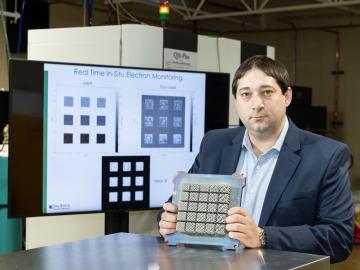
Growing up in the heart of the American automobile industry near Detroit, Oak Ridge National Laboratory materials scientist Mike Kirka was no stranger to manufacturing.

Algorithms developed at Oak Ridge National Laboratory can greatly enhance X-ray computed tomography images of 3D-printed metal parts, resulting in more accurate, faster scans.
Oak Ridge National Laboratory and collaborators have discovered that signaling molecules known to trigger symbiosis between plants and soil bacteria are also used by almost all fungi as chemical signals to communicate with each other.
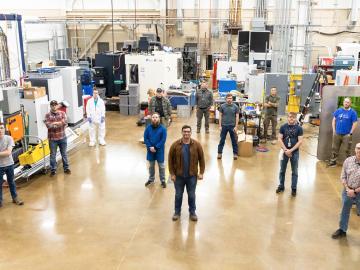
The University of Texas at San Antonio (UTSA) has formally launched the Cybersecurity Manufacturing Innovation Institute (CyManII), a $111 million public-private partnership.


